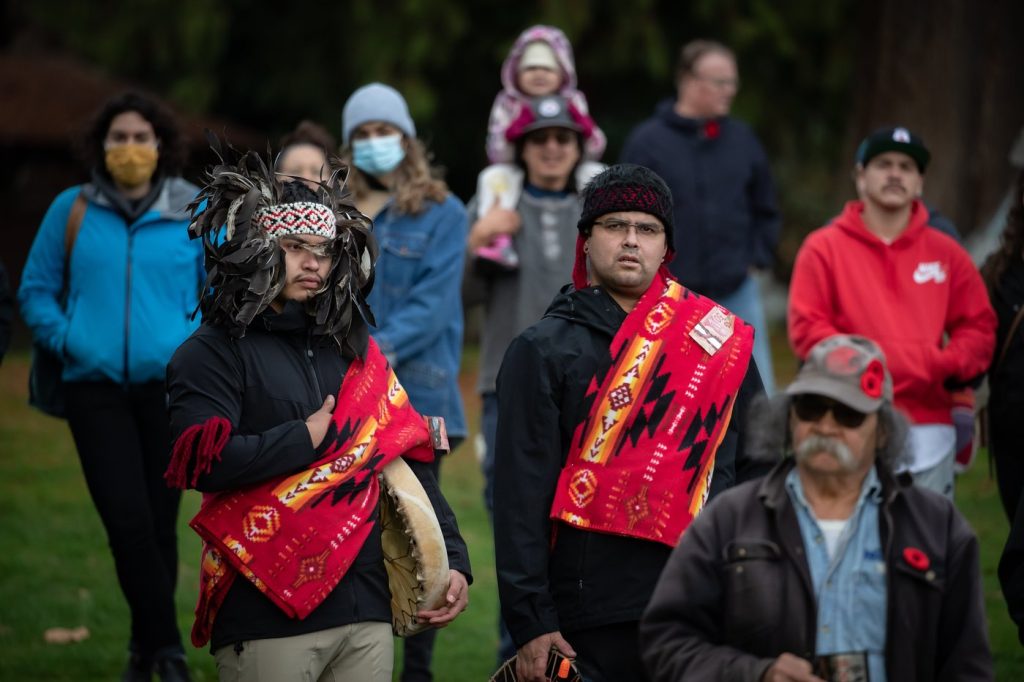Indigenous Veterans Day: Honoring Service and Sacrifice
Vancouver – John Moses reflects on the challenging journey of his father, Russell Moses, who returned from the Korean War in 1952 only to face discrimination at home due to his Indigenous identity. John Moses, a member of the Delaware and Upper Mohawk bands from Six Nations of the Grand River and a third-generation member of the Canadian Armed Forces, shared that his father was denied entry to a bar in Hagersville, Ontario, because of his race. This experience was not unique to Russell; many Indigenous veterans faced similar circumstances upon returning to Canada.
John Moses emphasized the irony that veterans who fought abroad for the sovereignty of other nations came home to a country where they still did not enjoy the same civil and political rights as their fellow Canadians. Canada commemorates Indigenous Veterans Day on November 8, a date that highlights the wartime experiences of Indigenous soldiers, many of whom found camaraderie and acceptance in the military that was often absent in civilian life.
Indigenous Veterans Day began as a grassroots initiative in Winnipeg in 1993 and has since become a recognized event across Canada. Historian Scott Sheffield describes the day as a "logical precursor to Remembrance Day," which is observed on November 11. Many people wonder why Indigenous individuals chose to serve in a military that marginalized them, and Sheffield points out that motivations varied. Indigenous fighters enlisted for diverse reasons, including adventure and economic opportunities, while others saw their service as a political statement to assert their right to belong to Canadian society.
One notable figure in this context is Tommy Prince, regarded as one of Canada’s most decorated World War II veterans. Prince famously enlisted to prove that Indigenous individuals could perform as well as their white counterparts, which motivated him throughout his military career. Sheffield notes that the war experience often transcended racial prejudices, as soldiers cared more about each other's character and reliability than their backgrounds when fighting side by side in combat.
However, the camaraderie experienced in combat did not always translate back home. Sheffield explained that many returning Indigenous veterans expected to receive acceptance and respect, but instead found themselves facing the same prejudice they had encountered before enlistment. After returning to civilian life, they felt diminished to being "just an Indian again," despite their service and sacrifices.
The federal government acknowledges that over 4,000 Indigenous individuals served during the First World War, with some communities, like the Head of the Lake Band in British Columbia, witnessing universal enlistment among eligible men. In the Second World War, over 3,000 First Nations members are recognized as having served, but Sheffield suggests that this number may be underestimated, possibly reaching as high as 4,300, as records often failed to document soldiers' ethnic backgrounds accurately.
Indigenous veterans anticipated that their sacrifices would lead to improved rights and standing within Canada, yet this expectation was met with disappointment. The government admits that the lack of progress has resulted in lasting consequences for both veterans and their communities.
In recent years, reconciliation efforts have included recognizing Indigenous veterans, notably through initiatives such as the Last Post Fund Indigenous Initiative. Launched in March 2019, this program ensures that Indigenous veterans receive dignified funeral services and appropriate grave markers, with over 265 markers ordered and placed to date. The initiative also employs Indigenous community researchers like Floyd Powder, who identify graves of unrecognized veterans, intending to incorporate Indigenous symbols or languages on gravestones to honor their heritage.
Veterans Affairs Canada stated that celebrating Indigenous Veterans Day complements, rather than replaces, Remembrance Day, enriching the observances during Veterans' Week and placing a spotlight on the significant history of Indigenous military service. Sheffield reflects on the importance of acknowledging the mutual respect and camaraderie shared between Indigenous and non-Indigenous soldiers, suggesting that these values can contribute to a respectful coexistence as Canada continues its journey toward reconciliation.











